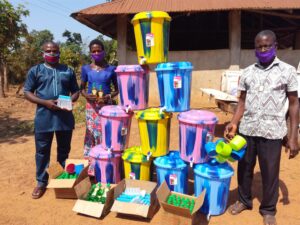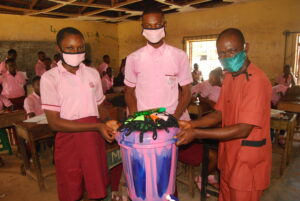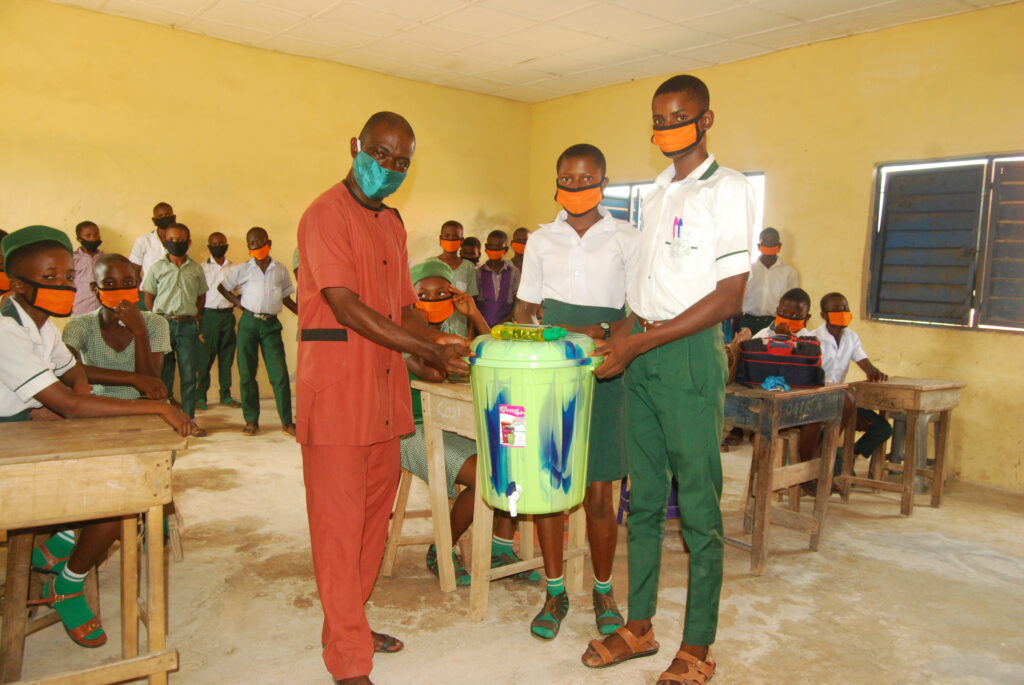The world is experiencing a resurgence of COVID-19 pandemic, which started in November 2020, with new cases and deaths recorded. Governments all over the world and corporate bodies like World Health Organizations (WHO), donor agencies, NGOs, research institutes, pharmaceutical companies, etc. are making relentless efforts to find solutions to the global pandemic. Safety measures introduced by these governments so far have only yielded temporal solutions, and this explains why the resurgence.
PDA believes that risk communication can be an effective tool in the control of this global health crisis. As part of PDA’s contribution in the fight against the coronavirus pandemic, PDA conducted risk communication in 16 schools (6 secondary schools and 10 primary schools) across 5 in Ebonyi State – Abakaliki, Afkipo North, Afikpo South, Ohaozara and Onicha, reaching out to over 5 thousand persons in the process. The objectives were:
- To ascertain to students’ level of knowledge about COVID-19.
- To understand their perceptions about coronavirus
- To find out the extent of their adherence to the NCDC guides
- To educate, change perceptions in order to bring about a behavioural change.
The general awareness about covid-19 pandemic was high, although not in all the schools. Talking about their perceptions about COVID-19, many believed it was real and there was need to adhere to the NCDC guidelines. However, a small percentage (20%) of the population surveyed had varying beliefs about global health crisis. A student from one of the Schools where the risk communication was conducted said he does not believe there is anything like coronavirus. To him it does not exist. He said, “Everything about coronavirus is fake.” In another school, a teacher said she awarded marks to a student who answered a question saying that another name for coronavirus is ‘COVID-419’. This also tells that the teacher does not believe that the virus exists. Talking about mode of transmission, some pupils said coronavirus is transmitted through cockroach, others said rats and earthworms. Some said it is an airborne disease while others said it is waterborne.
The role of risk communication in the fight against coronavirus is to tackle these misconceptions. Having identified the misconceptions of the people about the global health crisis, PDA intensified education and sensitisation of coronavirus, providing platforms for the re-orientation on the reality and existence of coronavirus, and influencing behavioural change.
The misinformation also made the people to ignore the NCDC safety guidelines. In order to buttress the importance of the NCDC safety guidelines such as regular hand washing with soap, use of nose mask and hand sanitisers, PDA donated COVID-19 prevention kits to all the schools where the risk communication was conducted. The prevention kits included: 17 Veronica buckets, 3 cartons of hand sanitisers, 3 cartons of liquid soap, and 3000 pieces of nose masks. They were made to understand that coronavirus pandemic is real; that even though it kills, it is preventable, and one can actually recover after being infected. We conveyed the right message that it is not an airborne disease, but that, it spreads through handshake, small droplets from sneezes and coughs, and touching contaminated objects. Symptoms include muscle pains, dry coughs, difficulty in breathing and fever. They were also meant to understand that some people can be asymptomatic. For prevention they were enjoined to use the nose masks, wash their hands regularly with soap, use of hand sanitisers, and social distancing. The immediate outcomes of the risk communication included, improved adherence to NCDC regulation guidelines and improved knowledge about coronavirus and these can bring about a significant impact in the fight against coronavirus.




